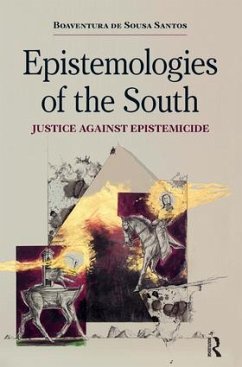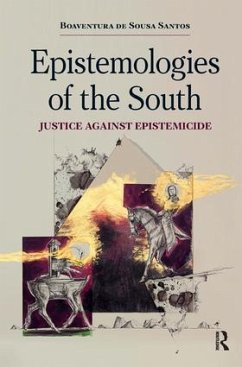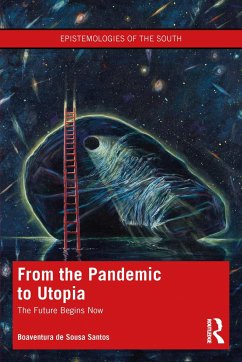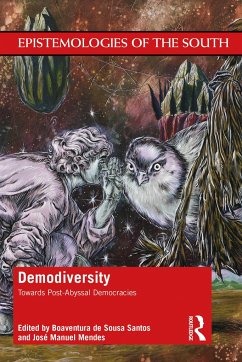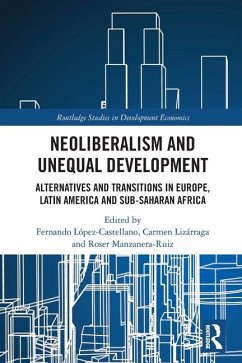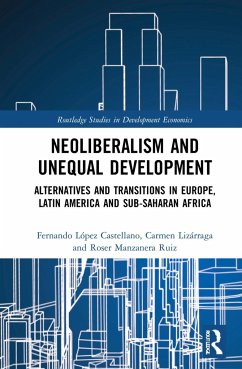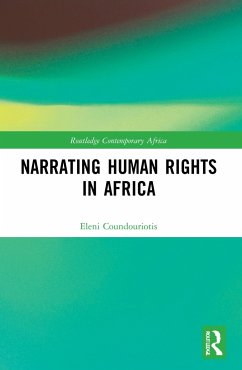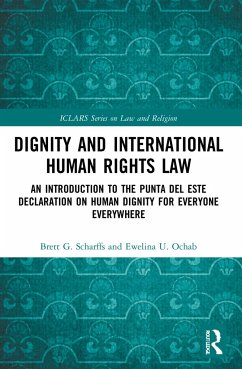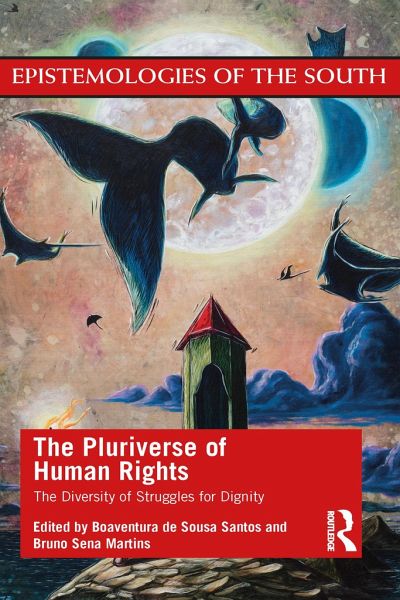
The Pluriverse of Human Rights
The Diversity of Struggles for Dignity: The Diversity of Struggles for Dignity
Herausgegeben: de Sousa Santos, Boaventura; Martins, Bruno
Versandkostenfrei!
Versandfertig in 6-10 Tagen
41,99 €
inkl. MwSt.

PAYBACK Punkte
21 °P sammeln!
The impasse currently affecting human rights as a language used to express struggles for dignity is, to a large extent, a reflection of the epistemological and political exhaustion which blights the global North. Since the global hegemony of human rights as a language for human dignity is nowadays incontrovertible, the question of whether it can be used in a counter-hegemonic sense remains open. Inspired by struggles from all corners of the world that reveal the potential but, above all, the limitations of human rights, this book offers a highly conditional response. The prevailing notion of h...
The impasse currently affecting human rights as a language used to express struggles for dignity is, to a large extent, a reflection of the epistemological and political exhaustion which blights the global North. Since the global hegemony of human rights as a language for human dignity is nowadays incontrovertible, the question of whether it can be used in a counter-hegemonic sense remains open. Inspired by struggles from all corners of the world that reveal the potential but, above all, the limitations of human rights, this book offers a highly conditional response. The prevailing notion of human rights today, as the hegemonic language of human dignity, can only be resignified on the basis of answers to simple questions: why does so much unjust human suffering exist that is not considered a violation of human rights? Do other languages of human dignity exist in the world? Are these other languages compatible with the language of human rights? Obviously, we can only find satisfactory answers to these questions if we are able to envisage a radical transformation of what is nowadays known as human rights. Herein lies the challenge posed by the Epistemologies of the South: reconciling human rights with the different languages and forms of knowledge born out of struggles for human dignity.





